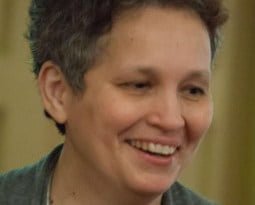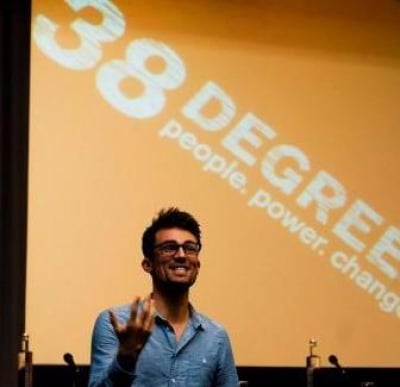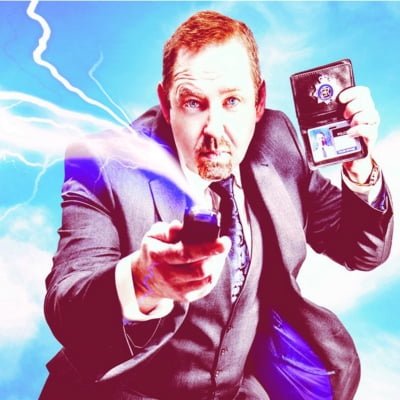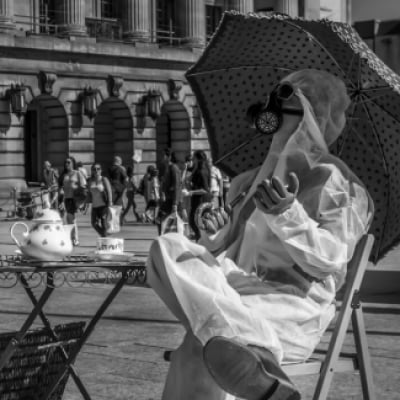 Settle Stories is now in its 6th year, and 2016 sees the return of a weekend long festival as the centrepiece of the year’s events. With a strong political focus this time around, over fifty events (many of them free) will be taking place at various venues around the picturesque Dales town. TSOTA’s Mike Farren caught up with organiser Sita Brand to find out more about this year’s festival.
Settle Stories is now in its 6th year, and 2016 sees the return of a weekend long festival as the centrepiece of the year’s events. With a strong political focus this time around, over fifty events (many of them free) will be taking place at various venues around the picturesque Dales town. TSOTA’s Mike Farren caught up with organiser Sita Brand to find out more about this year’s festival.
TSOTA: Last year, you told me that Settle Stories was “an Arts and Heritage organisation that wants to change the world through stories”. How are you going about that this year?
SB: We’ve got a very varied list of events this year. We’ve got a presentation called Storytelling for Change, where we have a Lebanese storyteller, Alia Alzougbi, and a Kenyan storyteller, Githanda Githae, who are working with stories in a range of places, including in the Lebanon and Kenya, using story as a medium for social change.
We’ve also got David Babbs from 38 Degrees, which is a community social action organisation. He’s coming to share his story about why he set up the organisation and the kind of change that he wants to bring to the world.
We’ve got an additional event that is not in the programme called Fair Tax Town. Here we have Jeff Thomas, who was in the television programme, who will be coming and talking about why small towns like Settle should get involved with the Fair Tax Town movement and how we can take on the HMRC to bring big business to account, so that the tax system is fairer for everyone.
The other critical event around story and change is The Construction of Narrative. Here, Dr. Anandi Ramamurthy will be talking about how the state and the media construct narratives, how we are swept up in those narratives and what roles we can play to construct our own narratives. Narratives are constructed both by ourselves and by other people around us.
We hope that, through this festival and those events in particular, we can start to shine a light on how narrative and story impact on and can make change in the world.

David Babbs – 38 Degrees
TSOTA: There seems to be quite a political focus. How did that come about?
SB: It evolved organically through discussion and conversation, which looked at, “how do we make change in the world through story?” We looked at who is making change in the world and what they are doing. Lots of people are doing it in different ways, but we wanted to bring that to the fore. We decided to put in more ‘political’ (with a small ‘p’) elements this year, and thus far, our audiences are very interested. The 38 Degrees event is already sold out and the others are doing well.
These events are mixed up with things like Romance and Ragamuffins and The Master Mythteller, which are based on story and myth and folk-tale. They’re older stories, but they also have important lessons for how we see ourselves, and the position of man or woman in society. Sometimes, with myth and folk-tale, it’s more difficult to look at the position of where we are, and I suppose we’re being more specific by having those other, slightly more political events.
We’ve also got Robin Hood, which is also a story about change. We have Arabian Nights in which Alia, the storyteller, is going to do a very different version. Rather than being an exotic, orientalist version of Scheherazade, this is much more contemporary.
TSOTA: You’re bringing out a thread that’s very important – the way we’re constructing narrative all the time.
SB: Sometimes, when we think about story and fairy tale, it gets relegated to something you just do when you’re little children, as opposed to the power that narrative has to make change in the world. Plato said that those who tell stories rule the world. It’s about how the stories that we create and the stories we construct make a difference both to ourselves and our fellow citizens.
This year, we wanted to bring out the importance and value of story for everyone across the political spectrum, across age groups and ethnicities. It has been interesting both in terms of the booking patterns and what we’ve heard through word of mouth. People are beginning to see that, actually, the festival is very relevant to them, and has a relevance to adults as well as children. They can still come and they can still have a nice time, and it can be a fun night out.

Alfie Moore – The Naked Stun
Credit: Idil Sukan
Naked Stun on Friday evening is Alfie Moore, who’s a well-known policeman-turned-comedian. He’s going to be telling stories about his life in Scunthorpe as a police officer. We’re hoping to bring different audiences in, to engage with the power of the narrative form.
[Insert image Alfie Moore The Naked Stun credit Idil Sukan.jpg here]
TSOTA: It seems to me that once you notice storytelling, you find it everywhere.
SB: We don’t remember things that are just a collection of facts. We remember things when there is a narrative, because we have an emotional involvement with what’s happening. There’s a narrative at the moment in the news over what’s happened in Brussels. There was ‘Je suis Paris’ and there’s ‘Je suis Brussels’, but why wasn’t there ‘Je suis Ankara’ and ‘Je suis Istanbul’? That in itself is a very important story that we need to engage with, because it asks us to question who and what we value. We remember it more easily and succinctly because there is a story, rather than that it’s a collection of facts where x number of people were killed.
I have always felt that the power of narrative and story is very important, but it’s important for us to understand its power. When we relegate it to just a fairy tale at bed-time – though that is incredibly important as well – and don’t look at it and understand its construction and don’t unpick it, then we can also fall foul of it. But by understanding the narrative, and how narratives are constructed, we can engage with the debate in a better informed way.
TSOTA: Are there any hidden gems at the festival that you think people really out to see, but might miss?
SB: There are two in particular. One is Master Mythteller, with Dr. Martin Shaw. He’s a world-renowned mythologist and his storytelling is electrifying. You are swept into a world of myth and experience the power of myth like no other.

The Litvinenko Project
The second is a smaller event called the Litvinenko Project. This is the story of the last day of Alexander Litvinenko, who was poisoned by the Russians, told through the medium of a tea party.
I’m really proud of those two events and really excited about them coming to the festival.
My own event is Down the Rabbit Hole, which is a re-working of Alice in Wonderland, told from the point of view of Alice’s older sister. I’m very proud of it! It will have its first airing at the festival. There are lots of references to Alice, but it’s told in a very different way. It brings together Alice and other fairy tales because the creatures she meets also tell her stories.
TSOTA: Last year, there were a number of events scattered throughout the year, whereas this time, there’s an identifiable ‘festival’ weekend. Why the change (or rather, the reversion)?
SB: Last year, we had events throughout the year and we had the Star Party. This year, there are also events throughout the year. Later in the year, we’ve got retreats developing your creativity. We’ve got an event with a Belgian storyteller, Iwan Kushka, in June. There’s Roald Dahl’s birthday party in July. There’s a geo-caching story trail that will open in August. And we’re developing an interactive storytelling piece that will take place later in the year, as well as a ghost night in November.
The difference is last year, other than the Star Party, we chose not to have a big festival. We took last year off to re-focus, to think about what we were doing, to try things out and to get our audiences to see that we were bringing story to communities throughout the year.
We’re still doing lots through the year, but in addition we’re also going back to having our big festival for the weekend.
The Settle Stories Festival takes place at various venues throughout the town from Friday 1st-Sunday 3rd April. For more details, see http://www.settlestories.org.uk/festival.

Comments